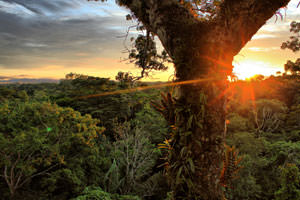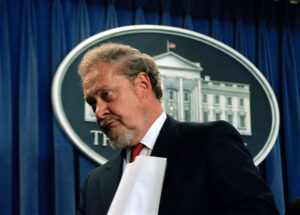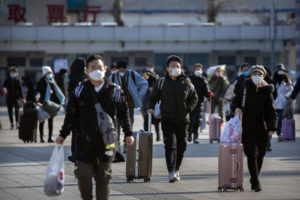Ecuador Will Allow Oil Drilling in the Amazon After Initiative Falters
"The world has failed us," President Rafael Correa said Thursday as he explained that a conservation plan to save Yasuni National Park from being savaged for petroleum had not garnered enough international support. This comes as devastating news to environmentalists the world over as the region contains “more species in one hectare than all the wildlife in North America.”
“The world has failed us,” President Rafael Correa said Thursday as he explained that a conservation plan to save Yasuni National Park from being savaged for petroleum had not garnered enough international support. This comes as devastating news to environmentalists the world over as the region contains “more species in one hectare than all the wildlife in North America.”
In order to pay off hefty loans the country received from China, the Ecuadorean government is selling inordinate amounts of oil. When the fossil fuel was discovered in this unpolluted region of the rainforest, the former minister of energy, Alberto Acosta, wrote the Yasuni ITT initiative. The plan intended to raise money from other nations instead of drilling in the pristine Yasuni area. The Guardian offers more details:
Money was not given directly to the Ecuadorean government but administered by the UN development programme working with a board made up of indigenous peoples, local communities, academics and others. They had lined up hydroelectric and solar projects, as well as social programmes, for funding.The news appears to have taken the UN development programme by surprise. The organisation’s Yasuni website is still taking donations for the initiative.
Although it was hailed as idealistic, there were several problems. Critics accused Correa of environmental extortion. Others were sceptical about what would happen to donations if the programme collapsed.
While individuals – including Bo Derek, Leonardo DiCaprio, Edward Norton and Al Gore, as well as many members of the British public (who were the leading private contributors) – made generous donations, government level response was weak.
Italy wrote off $51m of its external debt as a contribution, and Germany offered $50m in technical assistance to Yasuni rather than the ITT project. Chile, Colombia, Georgia and Turkey donated token amounts. Belgium, Brazil, France, Lebanon, Indonesia, Turkey, Spain and Qatar also promised donations.
By the start of this year, pledges totalled $300m, according to its negotiators, but it is now apparent that only a fraction of that amount was actually deposited in the trust.
Oil companies have lost no time in preparing for the conservation plan to fall through. In fact, they had already built roads to access the region, proof that, as Acosta claimed when he opposed Correa during this year’s election, “the infrastructure is already in place to exploit the oil.”
According to the president, however, this project meant more than conserving a precious piece of jungle; in his address to the nation he stated, “It was not charity that we sought from the international community, but co-responsibility in the face of climate change.”
—Posted by Natasha Hakimi
Your support matters…Independent journalism is under threat and overshadowed by heavily funded mainstream media.
You can help level the playing field. Become a member.
Your tax-deductible contribution keeps us digging beneath the headlines to give you thought-provoking, investigative reporting and analysis that unearths what's really happening- without compromise.
Give today to support our courageous, independent journalists.






You need to be a supporter to comment.
There are currently no responses to this article.
Be the first to respond.